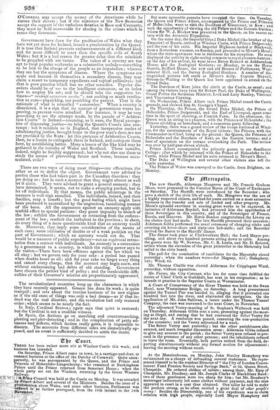There are two ways of doing most things—one efficacious, the
other so as to defeat the object. Government were advised to pardon those who had taken part in the Canadian disorders: they are doing so; but in such a manner that they might almost as well let it alone. They were advised to grant a general amnesty: they have determined, it seems, not to make a sweeping pardon, but to let off individuals. By that means, the public advantage in the measure is well nigh annulled. The individuals, indeed, and their families, reap a benefit; but the good feeling which might have been produced is neutralized by the ungracious, tantalizing manner of the boon. All the arguments against an amnesty apply with tenfold effect to special pardons: they grant impunity to breach of the law; exhibit the Government as retracting from the enforcement of the law; readmit the turbulent to the province; in short, do every thing of a more questionable kind that an amnesty would do. Moreover, they imply some consideration of the merits of each case; some admission of doubts or of a weak position on the part of Government; _which an amnesty would not do. That would be a measure of public expediency—not an equivocal retractation from a contest with individuals. An amnesty is a concession by a government to a country, in which the ruling power says to the nation—There have been offences against the law which we all obey: but we govern only for your sake: a period has passed when doubts beset us all; and for your sake we forget every thing and cancel every charge, that the account may begin anew, and without embarrassing bad debts of old standing. Government have chosen the pettier kind of policy; and the incalculable difficulties of their Governor's mission are proportionately aggravated.


























 Previous page
Previous page